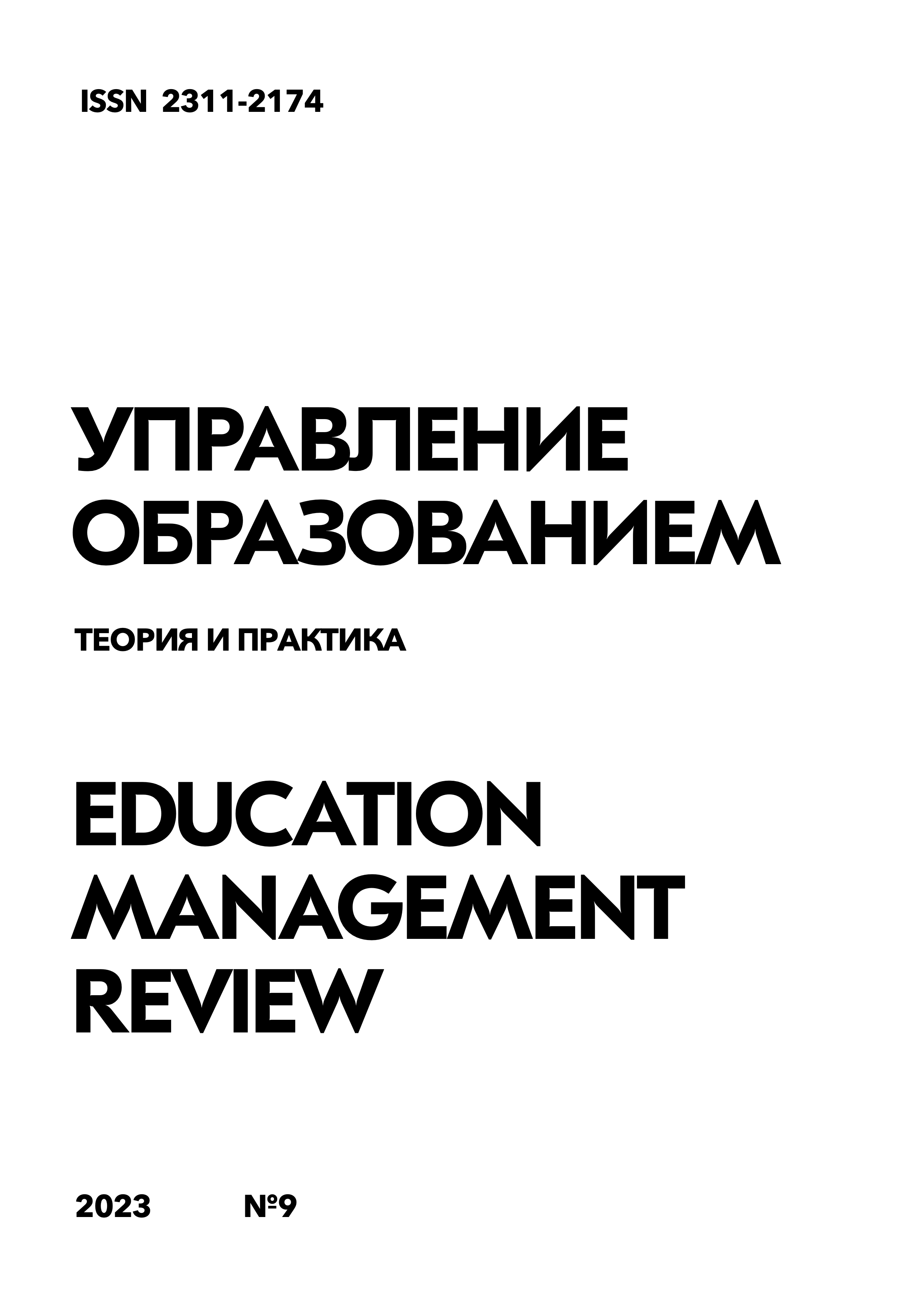Analysis of intensive technologies of teaching foreign languages in foreign and russian pedagogy
DOI:
https://doi.org/10.25726/p8882-9453-4332-vKeywords:
intensive training, foreign language, audio-linguistic method, behavioral approachAbstract
The article is devoted to the study of the problems of psychological support for intensive teaching of a foreign language. The authors note that in psychological and pedagogical science, a search is being made for ways and methods that would increase the pace of learning without reducing its quality. One of the ways to reform the process of teaching a foreign language in higher education is its intensification, emphasis on practical knowledge of the language, taking into account the individual psychological characteristics of students. The article analyzes the work of domestic and foreign scientists on the research topic. Foreign methods and technologies of intensive teaching of foreign languages are based mainly on the main provisions of behaviorism and cognitivism, while domestic ones are based on the principles of suggestive-pedagogical and activity approaches. Thanks to hard work in wartime conditions, observance of mandatory technical requirements (the duration of classes was at least 25 hours a week, in quantitative terms, groups consisted of 5-7 people and were recruited according to test results, etc.), the success of army courses was very significant. In the postwar years, this approach was subject to experimental testing in schools and colleges. However, this approach was not widely used because it had a number of disadvantages.
References
Abramova I.E., & Shishmolina, E.P. Professionally oriented foreign language communication teaching for non-linguistic students: motivational aspect. YAZYK I KULTURA-LANGUAGE AND CULTURE. 2023. № 62, Pp. 141–161. URL: https://doi.org/10.17223/19996195/62/8
Ben Hammou S., & Kesbi A. Exploring multilingual education in Morocco: official documents and teachers’ perceptions. INTERNATIONAL JOURNAL OF MULTILINGUALISM. 2023. https://doi.org/10.1080/14790718.2023.2235401
Bezukladnikov K.E., & Vakhrusheva O.V. Competence-oriented tasks as a way of selforganization formation while teaching a foreign language in a military university. YAZYK I KULTURA-LANGUAGE AND CULTURE. 2023. № 62. Pp. 162–182. URL: https://doi.org/10.17223/19996195/62/9
Bottineau,D. From Embodied Interactive Phonation to the Voices of Natural Languages. LANGAGES. 2023. № 230, Pp. 41-58.
Bryxina I.Y., & Derkach A.K. The use of the case method for the development of lexical competencies of students of medical specialties in the course “Foreign (French) language in the professional field.” YAZYK I KULTURA-LANGUAGE AND CULTURE. 2023. № 62, pp. 183–198. https://doi.org/10.17223/19996195/62/10
CHOUDARAJU, N., & KEDALA, K. (n.d.). Method for assessing qualified English as second language teachers academic skills in India’s remote rural colleges, involves analyzing correlations between variables in research question which shows positive re.
El Mouhayar R. The Use of Triadic Dialogue and Translanguaging to Teach Conventions and Properties During Trouble-Spots in Multilingual Algebra Classrooms. INTERNATIONAL JOURNAL OF SCIENCE AND MATHEMATICS EDUCATION. 2023. № 21(6), pp. 1819–1840. https://doi.org/10.1007/s10763-022-10326-x
Embarki M., Ziamari K., Ho, L.W., & We D. Fundamental Frequency Variation In U and 1.2: Case of Arabic and Malay-Speaking Learners of French. LANGAGES. 2023. № 230. S. 79.
Eschenauer S., Tsao R., Legou T., Tellier M., Andre C., Brugnoli I., Tortel A., & Pasquier A. (2023). Performing for Better Communication: Creativity, Cognitive-Emotional Skills and Embodied Language in Primary Schools. Journal of Intelligence, 11(7). https://doi.org/10.3390/jintelligence11070140
Fan Y., & Shen, L. Study on the Grammar System of Teaching Chinese as a Foreign Language in the Background of Information Technology. SECURITY AND COMMUNICATION NETWORKS, 2022. https://doi.org/10.1155/2022/6951714
Ling X., Ha J., & Ma, Y. Bilingual Teachers’ Contextualization in Teaching Chinese as a Foreign Language in Australian Schools. SUSTAINABILITY. 2023. № 15(6). https://doi.org/10.3390/su15065564
Liyuan H. (2023). Students’ Learning Autonomy: A Case Study of Undergraduate Course of Japanese Language Program. Journal of Psycholinguistic Research. https://doi.org/10.1007/s10936-023-09992-x
Los U. M. D. E. C. D. E. (n.d.). No 主観的健康感を中心とした在宅高齢者における 健康関連指標に関する共分散構造分析Title. 2100554.
Muhalim M. Negotiating Religious Discourses in English Language Teaching: Reorienting and Reframing Dominant English Ideologies. CHANGING ENGLISH-STUDIES IN CULTURE AND EDUCATION. 2023. № 30(3), Pp. 209–222. https://doi.org/10.1080/1358684X.2023.2217424
Salih A.A., & Omar L.I. Reflective Glimpses of Culture in EFL Online Classes during COVID-19 Pandemic in Oman. SUSTAINABILITY. 2023. № 15(13). https://doi.org/10.3390/su15139889
SHANMUGATHAI M., SIVASANKAR G.A., ANUSUYA M., SIVA R., RANI, S.M., EZHILMATHI, K., & JEGU, A. (n.d.). System for providing social network-based open educational resource for learning foreign languages by users in real time from native speakers, has automatic feedback system for providing automatic feedback to in.
Wahyud R. Destabilising English through Translingual Practice: A Case Study. CHANGING ENGLISH-STUDIES IN CULTURE AND EDUCATION. 2023. № 30(3), Pp. 275–285. https://doi.org/10.1080/1358684X.2023.2204219
Yang H., & Lian, Z. Ideal L2 Self, Self-Efficacy, and Pragmatic Production: The Mediating Role of Willingness to Communicate in Learning English as a Foreign Language. Behavioral Sciences (Basel, Switzerland). 2023. № 13(7). https://doi.org/10.3390/bs13070597
Yoko K. “Contemporary standard” English policy and pseudo-diversity among inner and outer circle assistant language teachers in Japan. INTERNATIONAL JOURNAL OF APPLIED LINGUISTICS. 2023. № 33(2), pp. 260–274. https://doi.org/10.1111/ijal.12464
Zhang X., & Reynolds, B. L. A Mixed-Methods Investigation of the Effectiveness and Perceptions of Learning English Collocations Using the Keyword Method and the Rote Learning Method. Behavioral Sciences (Basel, Switzerland). 2023. № 13(7). https://doi.org/10.3390/bs13070591




